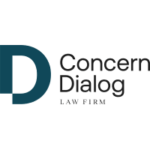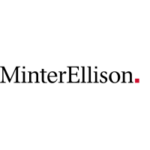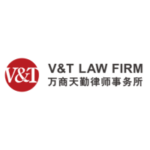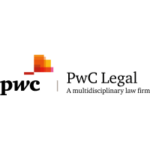-
What are the main methods of resolving disputes in your jurisdiction?
In the Polish legal system there are three main ways to resolve disputes: litigation before state courts, arbitration and mediation.
Litigation before state courts is the default setting for those who wish to resolve the dispute and enforce their rights. Arbitration is a dispute resolution forum reserved for those who have entered into an arbitration agreement. The most prominent Polish arbitration institutions are the Court of Arbitration at the Polish Chamber of Commerce (Sąd Arbitrażowy przy Krajowej Izbie Gospodarczej; SA KIG), and the Lewiatan Court of Arbitration (Sąd Arbitrażowy przy Konfederacji Lewiatan). Similar to arbitration, mediation also is based on an agreement between the parties.
-
What are the main procedural rules governing litigation in your jurisdiction?
The main procedural rules governing litigation in Poland is the Code of Civil Procedure. In addition, the act of 28 July 2005 on court costs in civil cases, the order of the Minister of Justice of 18 June 2019: Rules of procedure of common courts, and the order of the Minister of Justice of 14 July 2022; Rules of procedure of the Supreme Court are relevant.
-
What is the structure and organisation of local courts dealing with claims in your jurisdiction? What is the final court of appeal?
The claims are dealt with by common courts in two-instance civil proceedings. The structure of common courts is three-fold: (a) district courts; (b) regional courts, and (c) courts of appeal.
The default setting is that the district court is the court of first instance and the regional court is the court of second instance.
For cases where the value of the subject matter of the dispute exceeds PLN 100,000; cases in which resolutions of companies’ boards are challenged; cases for non-property rights (e.g. infringement of personal rights), or cases concerning claims arising from the violation of personal data protection regulations, the regional court rules as the court of first instance and the court of second instance is the court of appeal.
The common courts are supervised by the Supreme Court. A party dissatisfied with a judgment of a court of second instance may file a cassation appeal with the Supreme Court. However, not every case is eligible for a cassation appeal. A cassation appeal is not eligible – with certain exceptions – in cases where the value of the subject of the dispute is less than PLN 50,000, and, if the case concerns labour and social insurance law, less than PLN 10,000. A cassation appeal also cannot be lodged, inter alia, in cases for divorce, separation, alimony, rent or tenancy, or infringement of possession. Before a case – formally eligible for a cassation appeal – is examined by the Supreme Court on its merits, the Supreme Court decides whether it will agree to examine it. The Supreme Court will only agree to examine a cassation appeal if one of the following legal prerequisites is demonstrated by the party filing the cassation appeal: (a) the case involves a significant legal issue, (b) there is a need to interpret legal provisions which raise serious doubts or cause discrepancies in the jurisprudence of the courts, (c) the proceedings are invalid, (d) the cassation complaint is obviously justified.
-
How long does it typically take from commencing proceedings to get to trial in your jurisdiction?
Proceedings before Polish courts do not contain a “trial” as known in some common law legal systems. As a rule, in the first part of the case, the parties file preparatory pleadings (a statement of claim, a statement of defence, etc.) and then there are hearings in which oral arguments are presented and witness or expert witnesses are examined.
This second part is, to some extent, similar to a common-law trial. An important difference between the two, however, is that in Poland, most often weeks or even months will pass between court hearings in a given case (although occasionally judges schedule a number of hearings in a given case on consecutive days and have the entire evidence proceedings conducted after a week).
On average, in large cities, where the courts have more cases to hear, it takes approximately 1.5 years from commencing proceedings to the first hearing. In smaller cities, where the courts are less busy, first hearing takes place from several months to up to 1 year after the commencement of the proceedings. This lengthy process is a by-product of the pandemic.
-
Are hearings held in public and are documents filed at court available to the public in your jurisdiction? Are there any exceptions?
As a general rule, all hearings in civil cases are open to the public. The openness of hearings is a constitutional principle. Only minor procedural decisions may be made by the court in a closed session. Only persons of legal age have access to public hearings.
However, the court may decide to hear the case in camera if the public hearing of the case threatens public order or morals, if classified information or business secrets may be disclosed, if details of family life are to be discussed, or for any other reasons given by the party that the court deems valid.
The situation is different with case files, which, as a rule, are only available to the parties to the proceedings and their attorneys. The court can grant access to the (un-anonymized) court files to a third party when that person has demonstrated a legal interest. Case files may also be made available to third parties – in anonymized form – through the procedure of access to public information, after meeting conditions specified in the Access to Public Information Act.
-
What, if any, are the relevant limitation periods in your jurisdiction?
The are two default limitation periods – 3 years for claims arising from business activities and for claims for periodic payments (mainly interest), and 6 years for other claims. Besides, for many individual types of claims Polish law provides for different limitation periods.
For example, a 2-year limitation period applies to claims under a contract for completing a specific project (umowa o dzieło) or to claims of professional sellers or professional service providers (a 2-year limitation period does not apply to claims of a buyer/service-receiver or a seller/service provider who sells/provides as an amateur rather than in the course of a professional activity). The limitation period of 1 year applies, for example, to claims under a preliminary agreement or to certain claims under the lease agreement (for those claims the limitation periods starts on the date when the leased property is returned).
If the limitation period is 2 years or longer, the end of the period of limitation falls on the last day of the calendar year.
Limitation of claims is taken into account by the court only if the debtor raises the statute of limitations defence. However, the time limitation of a claim against the consumer is taken into account by the court ex officio.
The limitations period begins to run when the claim becomes due. If the maturity of the claim depends on an act of the creditor, the limitation begins on the day when the claim would have become mature if the creditor undertook the act at the earliest possible opportunity. However, in specific cases, substantive law may provide for other triggers of limitation period.
-
What, if any, are the pre-action conduct requirements in your jurisdiction and what, if any, are the consequences of non-compliance?
There are no pre-action conduct requirements in the Polish legal system. The only requirement that somewhat relates to the parties’ pre-action conduct is the requirement to indicate in the statement of claim whether the parties have attempted mediation or other out-of-court resolution of the dispute, and, if such attempts have not been made, to explain the reasons for not doing so. However, neither mediation, nor other out-of court dispute resolution attempts, nor any other pre-action conduct is compulsory.
-
How are proceedings commenced in your jurisdiction? Is service necessary and, if so, is this done by the court (or its agent) or by the parties?
The proceedings are initiated by the claimant’s filing of the statement of claim. The statement of claim must meet formal requirements and must indicate the claim, describe the facts supporting it and evidentiary motions. The documents proving the claim should be attached to the statement of claim. When filing the statement of claim, the claimant is obliged to pay the court fee.
The claimant must send a copy of the statement of claim and the attached documents proving the claim for the respondent to the court (together with a copy for the court). If the statement of claim meets all the formal requirements the court then serves a copy of the statement of claim on the respondent. Afterwards, during the course of the proceedings, professional attorneys are obliged to send the copy of their pleadings directly to the attorney of the opposite party (with some exceptions, for example an appeal, a complaint, a cassation appeal, or an amendment to the claim).
In general civil proceedings, the statement of claim can be amended. However, this possibility is severely limited in commercial disputes. The claimant can withdraw the statement of claim during the proceedings but, in some cases, the respondent’s consent is required.
-
How does the court determine whether it has jurisdiction over a claim in your jurisdiction?
The jurisdiction of the Polish courts in international cases is guided by (a) the Code of Civil Procedure; (b) international agreements; and (c) Regulation (EC) No. 1215/2012.
A defendant residing, sitting or domiciled in Poland will be subject to the jurisdiction of Polish courts. In specific cases, the Polish courts have jurisdiction determined based on the place where the contract was performed, the location of the real estate, or the location where the damage occurred. Moreover, in most cases, the parties can agree on the jurisdiction of the Polish courts.
The Code of Civil Procedure provides for the regulations of local and functional jurisdictions. Local jurisdiction depends, as a rule, on the domicile or the seat of the defendant but, in specific matters, the local jurisdiction depends on the matter in dispute. If the local jurisdiction is not exclusive, the parties can agree on the jurisdiction of another court. Functional jurisdiction depends on the matter in dispute; it cannot be changed by the parties.
-
How does the court determine which law governs the claims in your jurisdiction?
In relations between entities from member states of the European Union the applicable conflict of law rules are two EU regulations, namely Regulation (EC) No. 593/2008 of the European Parliament and of the Council of 17 June 2008 on the law applicable to contractual obligations (Rome I) and Regulation (EC) No. 864/2007 of the European Parliament and of the Council of 11 July 2007 on the law applicable to non-contractual obligations (Rome II).
In cases not governed by the EU regulations, the courts will refer to international agreements. If the issue of the applicable law is not determined on the basis of EU regulations or international agreements, the courts will determine the applicable law on the basis of the provisions of the Polish act of 4 February 2011 – International Private Law.
In line with those acts, Polish courts will consider a range of factors to determine which law governs a claim, such as: parties’ agreement on the applicable law, the type of the claim, the causes of action relied on by the parties, habitual residence of the parties, location where the damage occurred, place of performance of the contract, etc.
-
In what circumstances, if any, can claims be disposed of without a full trial in your jurisdiction?
If the defendant has not filed an answer to the statement of claim within the prescribed time limit, the court may issue a default judgment in closed session. In such a situation, when issuing a default judgment, the court accepts as being true the facts set out in the statement of claim or the pleadings served on the defendant before the hearing, unless the court finds them questionable or they have been argued in order to evade the law.
If the defendant has failed to file an answer to the statement of claim within the prescribed time limit and subsequently fails to appear at the hearing or fails to participate in the hearing despite appearing, a default judgment becomes mandatory.
Polish civil procedure also provides that in certain situations the court may decide on the claim on the basis of the statement of claim itself by issuing an order for payment (nakaz zapłaty). As a rule, the court may issue an order for payment only if the claimant is pursuing a monetary claim or the provision of other things that are fungible. The defendant may challenge the order for payment. If they do so, the case is heard under the general rules and the court conducts a full trial. However, if the defendant does not challenge the order for payment within the time limit, the order becomes final and has the force of a final judgment issued after a full trial.
-
What, if any, are the main types of interim remedies available in your jurisdiction?
Polish law allows for several types of interim applications, including interim injunctions and evidence preservation. Interim injunction may be granted to a party if they substantiate (a) the claim to be secured; and (b) a legal interest in granting security.
The legal interest in granting injunctive relief exists when the lack of security will prevent or seriously impede the enforcement of the judgment made in the case, or will otherwise prevent or seriously impede the achievement of the purpose of the proceedings in the case.
While granting the interim injunction, the court may decide to secure a monetary claim by, inter alia, encumbering real estate property with forced mortgage, seizing movable property, seizing bank accounts or other receivables or establishing compulsory administration of businesses. If the secured claim is non-pecuniary, the court may secure it in any manner appropriate, including suspending the effects of some legal actions or even prohibiting certain actions.
The interim injunction is allowed in most cases; however, it is not allowed to secure pecuniary claims against the State Treasury.
When granting an interim injunction prior to the institution of proceedings on the merits in a given case, the court determines a deadline for filing a statement of claim. Such a deadline must not exceed two weeks. If the party to whom the interim injunction was granted fails to submit a statement of claim before such a deadline elapses, the interim injunction expires.
The preservation of evidence consists of its examination by the court before the proceedings on the merits of the case are initiated.
-
After a claim has been commenced, what written documents must (or can) the parties submit in your jurisdiction? What is the usual timetable?
The proceedings start with the filing of a statement of claim by the claimant with a copy for the defendant. When the court serves the defendant with a copy of the statement of claim, it sets a deadline for the defendant to file a statement of defence. This deadline may not be shorter than two weeks.
The court may order the parties to exchange further pre-trial pleadings, if it finds it justified and especially in complex cases.
-
What, if any, are the rules for disclosure of documents in your jurisdiction? Are there any exceptions (e.g. on grounds of privilege, confidentiality or public interest)?
Under Polish law, each party bears the burden of proving the facts supporting its case. Accordingly, the parties are not required to disclose documents or information that might be harmful to their case. In Poland there are no pre-trial common laws like discovery procedures. However, Polish law provides two types of somewhat similar procedures.
First, the party may request that the court orders the opposite party, a third party, or some administrative bodies to provide documents that are in their possession. If the party fails to provide documents despite an order to do so, the court should assess the significance of such obstruction, namely the court may find the facts given by the requesting party proven. If the third party fails to provide documents, the court may impose a fine. All parties have access to the documents provided in this procedure.
Second, in the proceedings regarding damages caused by a breach of competition law, there is a discovery procedure more similar to that known in common law systems.
-
How is witness evidence dealt with in your jurisdiction (and in particular, do witnesses give oral and/or written evidence and what, if any, are the rules on cross-examination)? Are depositions permitted?
In general, witnesses testify orally during the hearing, but it is also possible to examine the witness remotely; however, the parties have a right to oppose the remote examination.
The testimony starts with the Court’s instruction of the witness about the criminal liability for giving false testimony and then answering the presiding judge’s questions as to what the witness knows about the case concerned and the sources of such knowledge, after which judges and parties may ask the witness relevant questions. The order in which witnesses are interrogated is determined by the court. Witnesses who have not yet testified must not attend the interrogation of other witnesses.
A witness may also testify in writing if the court so decides. The parties cannot oppose the written testimony ordered by the court. The court may decide that a witness who gave written testimony will additionally testify orally, especially if a party requests it.
The right to refuse to testify is given to the spouses of the parties and their close families. A witness may refuse to answer a question if their testimony could expose them or their close relatives to criminal liability, disgrace or direct and severe financial loss, or if his or her testimony would involve violation of professional privilege.
Some categories of persons cannot testify at all. This applies, in particular, to (a) persons who are incapable of noting or communicating their observations; (b) military personnel and civil servants who have not been released from the obligation to maintain the secrecy of classified information; and (c) legal representatives of the respective parties.
Also, mediators may not testify with respect to facts which they have learned in connection with mediation, unless the parties release them from the obligation of confidentiality of mediation.
Polish law does not provide for cross-examination of witnesses as known from common law systems. Attempts to cross-examine a witness in a Polish court most often fail. The courts usually overrule questions typical of cross-examination, considering them to be suggestive questions.
Polish law also does not provide for the use of depositions.
-
Is expert evidence permitted in your jurisdiction? If so, how is it dealt with (and in particular, are experts appointed by the court or the parties, and what duties do they owe)?
The court may admit the evidence of an expert witness opinion at the request of the parties or, exceptionally, ex officio. The court should do so if special information is required in the case.
The expert witness is appointed by the court. The parties are entitled to suggest candidates become an expert witness but these suggestions are not binding on the court. The parties may provide private expert witness opinions; however, such opinions are not considered to be expert witness opinions. They are considered merely to detail the party’s position on a subject concerning special information.
The expert witness prepares the opinion in writing, and the parties are allowed to comment on the opinion and ask additional questions. If ordered so by the Court – either at the request of the parties or in exceptional cases ex officio – the expert witnesses prepares an additional opinion in writing and/or may be heard orally at the hearing. It is also possible to examine the expert witness remotely. The evidence of an expert witness opinion is subject to the court’s evaluation, as with any other evidence. However, in practice, if the opinion is well justified, it answers the court’s questions and its conclusions are firm and logical, the courts will rely on the experts’ conclusions in most cases and not contest them.
-
Can final and interim decisions be appealed in your jurisdiction? If so, to which court(s) and within what timescale?
Judgments of the court of first instance may be appealed. In order to challenge a judgment, a party should first request a written justification of the judgment. An appeal should be filed within 2 weeks from receipt of the judgment together with the written justification. If the time limit to prepare a written justification of a judgment is extended (usually the court should prepare the justification within 2 weeks), the deadline for filing an appeal is extended to 3 weeks.
Poland has a full appeals system, which means that the court of second instance does not only review the first instance judgement, but reviews and decides the case itself.
A party dissatisfied with the final judgment of a court of second instance resolving the dispute may file a cassation appeal with the Supreme Court. However, not every case is eligible for a cassation appeal. A cassation appeal is not eligible – with certain exceptions – in cases where the value of the subject of the dispute is less than PLN 50,000, and if the case concerns labour and social insurance law – less than PLN 10,000. Neither can a cassation appeal be lodged, inter alia, in cases for divorce, separation, alimony, rent or tenancy or infringement of possession.
A cassation appeal should be filed within 2 months from receipt of the second instance judgment, together with its written justification.
In addition to judgments that resolve the merits of a dispute, courts also issue other decisions which may either end the proceedings in the case or pertain to incidental matters (e.g. a decision to preserve evidence). Such decisions may also be challenged if specified by law.
The time limit for lodging a complaint against such court decisions is 1 week from the date of service on the party of the decision, together with its written justification.
A party may file a cassation appeal with the Supreme Court against a decision of the second instance court rejecting a lawsuit on procedural grounds or discontinuing proceedings in a case, although not in every case. The right to lodge a cassation appeal is subject to similar restrictions in the case of these decisions as in the case of a cassation appeal against a final judgment of a court of second instance. Also, the time limit for filing a cassation appeal against such decisions is similar – it is 2 months from the date of service of the second instance court’s decision together with written justification.
-
What are the rules governing enforcement of foreign judgments in your jurisdiction?
The procedure for enforcement of foreign judgments varies depending on the origin of the judgment (EU or non-EU), and is governed by a combination of EU regulations, international treaties, and national laws.
Judgments from EU member states are automatically recognized in Poland without the need for special proceedings. Certain grounds for refusing enforcement of such judgments exist, such as public policy concerns or irreconcilability with a previous judgment. The law applicable to the enforcement of EU member states’ judgments is regulation No. 1215/2012 (Brussels I bis).
For judgments from non-EU countries, enforcement in Poland is governed by (a) bilateral or multilateral treaties; or if no treaty applies and (b) Polish Code of Civil Procedure.
Poland is a party to several treaties that provide for the mutual recognition and enforcement of judgments. If a treaty exists between Poland and the country where the judgment was issued, the treaty’s provisions will apply. If no treaty applies, enforcement is governed by the Polish Code of Civil Procedure.
Under the Polish Code of Civil Procedure, to enforce a foreign judgment the judgment must first be recognized as enforceable by a Polish court. The process requires the applicant to submit a certified copy of the judgment, proof that it is final and enforceable, and a certified translation into Polish. The court will examine, inter alia, whether (a) the judgment is final, binding and enforceable in the state of origin; (b) the case in which the judgment was given does not fall within the exclusive jurisdiction of the Polish courts; (c) the defendant was properly served; (d ) the parties were afforded the proper opportunity to defend their rights; (e) there are no conflicting judgments or pending cases in Poland; (f) the judgment does not violate Polish public policy.
If these conditions are met, the court will recognize the judgment, allowing it to be enforced in Poland just like a domestic judgment.
-
Can the costs of litigation (e.g. court costs, as well as the parties’ costs of instructing lawyers, experts and other professionals) be recovered from the other side in your jurisdiction?
Litigation costs are awarded by the court according to the following principles. In general, the unsuccessful party is obliged to reimburse the opponent for the costs necessary to assert their rights and defend themselves. Where only a part of claims are awarded, costs should be reciprocally excluded or proportionally shared. Costs should be awarded to a defendant despite a claim being upheld, if the defendant gave no reason to start a case and recognized the claim at the earliest possible moment. In specially justified circumstances, the court may charge the losing party with only a part of the costs or no costs at all. Notwithstanding the outcome of a case, the court may order a party to reimburse any costs caused by their undue or evidently improper conduct.
The court may only decide to award litigation costs to a party which previously requested it. In practice, it is hardly ever the case that a party does not request an award of litigation costs.
However, unlike in arbitration, the recoverability of legal fees (especially costs of instructing lawyers) incurred by the successful party is heavily limited by statutory regulations. The recoverable legal fees are capped by legal regulations and the limits are low. Consequently, in practice, the winning party, usually recovers only a small fraction of the amount of its attorney’s actual remuneration from the losing party.
-
What, if any, are the collective redress (e.g. class action) mechanisms in your jurisdiction?
The Polish law permits group actions, but they are quite limited in scope and therefore rare in practice. The use of group proceedings in pecuniary claims is only allowed if the amount of each group member’s claim has been harmonised by equalising the claims of the members of the group or sub-group. Group actions are based on the opt-in principle.
-
What, if any, are the mechanisms for joining third parties to ongoing proceedings and/or consolidating two sets of proceedings in your jurisdiction?
Polish law provides for several mechanisms for joining third parties to ongoing proceedings.
A third person who has a legal interest in a case being settled in favour of one of the parties may, at any stage of the proceedings until the trial is closed in the second instance, join the said party as a so-called indirect intervenor. An indirect intervenor may take any procedural actions as may be admissible at a given stage of the case. However, such actions may not run counter to the actions and statements of the party that the intervenor has joined.
An indirect intervenor may not bring an allegation against the party whom he has joined on the grounds that a case was erroneously settled or that the party misconducted the proceedings, unless where the status of the case upon his intervention prevented them from using defence measures or where the party, by willful act or negligence, did not use measures that were not known to the intervenor.
The joinder of a third party to ongoing proceedings may also be prompted by a party to the dispute. A party who, in the case of an unfavourable settlement, would have the right to pursue claims against a third party, or against whom a third party could pursue claims, may notify that third party of the pending lawsuit and summon them to participate therein. The joinder of such a third party is voluntary; however, if the summoned third party chooses not to join the case, then, like an indirect intervener, they cannot later argue that the summoning party has handled the case improperly or that the case has been decided incorrectly.
In addition, it is possible to join to the case as the person who should or could be the claimant or the defendant. A person summoned as plaintiff or defendant may, subject to the consent of both parties, replace the original plaintiff or defendant respectively. The original plaintiff or defendant is then released from participation in the case.
The court may decide to hear and adjudicate several separate cases pending before that court jointly if they are interrelated or could have been covered by a single statement of claim.
-
Are third parties allowed to fund litigation in your jurisdiction? If so, are there any restrictions on this and can third party funders be made liable for the costs incurred by the other side?
Polish law does not provide for regulations or restrictions on litigation funding. Accordingly, due to the lack of relevant regulation, third party funders cannot be made liable for the costs incurred by the other side.
-
What has been the impact of the COVID-19 pandemic on litigation in your jurisdiction?
The COVID-19 pandemic has had a significant impact on litigation in Poland, influencing various aspects of the judicial system and legal proceedings. During the early stages of the pandemic, many courts were either closed or operated with limited capacity. This led to significant delays in hearing cases and a backlog of pending cases.
To mitigate the disruption caused by the pandemic, Polish government introduced temporary legislative measures to adapt the judicial system to the pandemic context. This legislation has allowed the use of a number of digital tools not previously used in the Polish judicial system. Specific procedural rules were modified to accommodate remote proceedings. Many hearings, especially non-criminal ones, were conducted via videoconferencing. It also introduced the possibility of serving court letters on the parties’ professional attorneys electronically. Apart from that digital transformation, certain deadlines and limitation periods were extended.
The ‘temporary’ changes introduced then have proved to be permanent. The regulation of remote hearings was transferred from the law, which had a temporary and intervening character, to the Code of Civil Procedure. Also, electronic service of court documents can now be considered an established rule in Polish civil procedure. Thus, the long-term impact of the Covid-19 pandemic is expected to include a more resilient and technologically adept judicial system.
-
What is the main advantage and the main disadvantage of litigating international commercial disputes in your jurisdiction?
The main advantages of litigating international commercial disputes in Poland are that the court fees are capped at 200,000 PLN, which makes them lower compared to other jurisdictions. The main disadvantages are: (a) the lengthy proceedings; (b) the structure of the trial, i.e. many hearings take place and the parties exchange several pleadings; (c ) the impossibility of conducting litigation in English (which entails the need to translate all the papers).
However, a major reform of the Polish Civil Procedure Code is currently under discussion in 2025. The proposed changes seek to simplify and streamline proceedings, remove ineffective solutions, and retain those that have proven useful in practice -such as written witness statements. The reform is expected to improve procedural clarity and reduce the overall length and complexity of court cases.
-
What is the most likely growth area for commercial disputes in your jurisdiction for the next 5 years?
In the coming years, we anticipate a significant increase in construction-related disputes, particularly in the energy and defence sectors. This projection is closely linked to Poland’s ambitious infrastructure plans aimed at meeting defence objectives and expanding the renewable energy sector. Given the scale, complexity, and long-term nature of these projects, disputes are likely to arise at various stages of their implementation.
We also contemplate a rise in private enforcement matters due to the transposition of the EU Damages Directive into Polish law. This trend is likely to continue as businesses and individuals become more aware of their right to claim compensation for harm caused by antitrust violations. Furthermore, with the increasing scrutiny of competition authorities on market behaviour, there may be an increase in disputes related to antitrust laws, merger control, state aid, and unfair competition practices. Companies may face challenges related to compliance with competition laws, leading to more litigation in this area.
-
What, if any, will be the impact of technology on commercial litigation in your jurisdiction in the next 5 years?
Over the next five years, we expect steady progress in the digitalization of commercial litigation in Poland. Tools introduced during the pandemic—such as remote hearings and electronic service (e-doręczenia)—will continue to evolve, becoming more user-friendly and better integrated with court procedures. Electronic communication between parties and courts will become more common and less formal, supporting greater procedural efficiency.
Significantly, as of 1 January 2025, designated public and private entities will be required to use e-doręczenia which will replace traditional registered mail. A national database of electronic addresses (BAE) has been created to support this shift, and hybrid solutions will remain available for those who are digitally excluded.
Poland: Litigation
This country-specific Q&A provides an overview of Litigation laws and regulations applicable in Poland.
-
What are the main methods of resolving disputes in your jurisdiction?
-
What are the main procedural rules governing litigation in your jurisdiction?
-
What is the structure and organisation of local courts dealing with claims in your jurisdiction? What is the final court of appeal?
-
How long does it typically take from commencing proceedings to get to trial in your jurisdiction?
-
Are hearings held in public and are documents filed at court available to the public in your jurisdiction? Are there any exceptions?
-
What, if any, are the relevant limitation periods in your jurisdiction?
-
What, if any, are the pre-action conduct requirements in your jurisdiction and what, if any, are the consequences of non-compliance?
-
How are proceedings commenced in your jurisdiction? Is service necessary and, if so, is this done by the court (or its agent) or by the parties?
-
How does the court determine whether it has jurisdiction over a claim in your jurisdiction?
-
How does the court determine which law governs the claims in your jurisdiction?
-
In what circumstances, if any, can claims be disposed of without a full trial in your jurisdiction?
-
What, if any, are the main types of interim remedies available in your jurisdiction?
-
After a claim has been commenced, what written documents must (or can) the parties submit in your jurisdiction? What is the usual timetable?
-
What, if any, are the rules for disclosure of documents in your jurisdiction? Are there any exceptions (e.g. on grounds of privilege, confidentiality or public interest)?
-
How is witness evidence dealt with in your jurisdiction (and in particular, do witnesses give oral and/or written evidence and what, if any, are the rules on cross-examination)? Are depositions permitted?
-
Is expert evidence permitted in your jurisdiction? If so, how is it dealt with (and in particular, are experts appointed by the court or the parties, and what duties do they owe)?
-
Can final and interim decisions be appealed in your jurisdiction? If so, to which court(s) and within what timescale?
-
What are the rules governing enforcement of foreign judgments in your jurisdiction?
-
Can the costs of litigation (e.g. court costs, as well as the parties’ costs of instructing lawyers, experts and other professionals) be recovered from the other side in your jurisdiction?
-
What, if any, are the collective redress (e.g. class action) mechanisms in your jurisdiction?
-
What, if any, are the mechanisms for joining third parties to ongoing proceedings and/or consolidating two sets of proceedings in your jurisdiction?
-
Are third parties allowed to fund litigation in your jurisdiction? If so, are there any restrictions on this and can third party funders be made liable for the costs incurred by the other side?
-
What has been the impact of the COVID-19 pandemic on litigation in your jurisdiction?
-
What is the main advantage and the main disadvantage of litigating international commercial disputes in your jurisdiction?
-
What is the most likely growth area for commercial disputes in your jurisdiction for the next 5 years?
-
What, if any, will be the impact of technology on commercial litigation in your jurisdiction in the next 5 years?




























